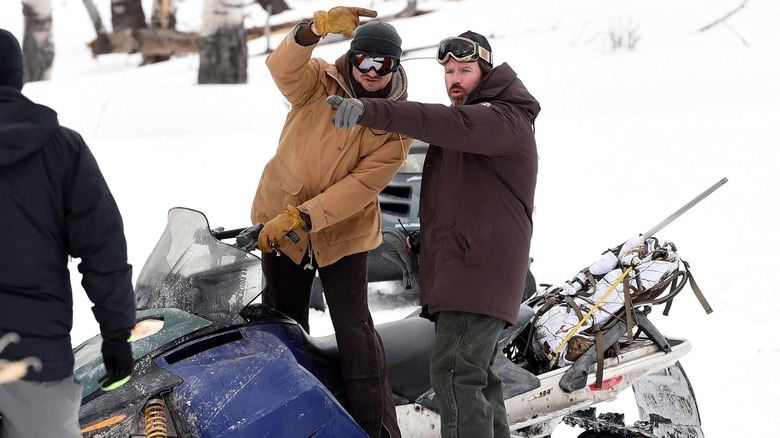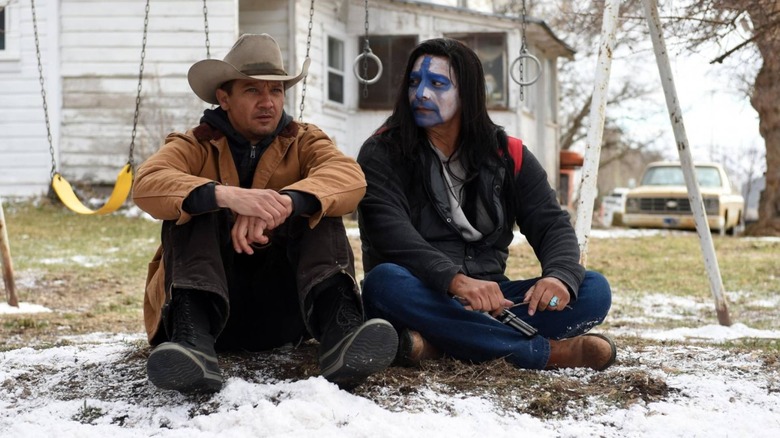Yellowstone's Taylor Sheridan Had One Condition To Direct Wind River
Taylor Sheridan might be a massive name now (what with his plethora of shows on Paramount+), but he's made just as much of a mark on the big screen as he has on television. After leaving the cast of "Sons of Anarchy," Sheridan turned to writing and churned out an absolute banger in the form of "Sicario," a script that was then brought to life by director Denis Villeneuve, catapulting both of their careers into the stratosphere. A couple of years after that, Sheridan made the jump to helming one of his own scripts when he oversaw the Jeremy Renner and Elizabeth Olsen-led thriller, "Wind River."
The film stars Olsen as Jane Banner, an FBI agent who heads to the Wind River Indian Reservation to solve the case of the murder of one of its locals. Lending a helping hand and his tracking skills is Jeremy Renner as Cory Lambert, who discovers the frozen body of the victim and gets invested in helping bring the killers to justice. As it stands, "Wind River" is still one of Sheridan's best movies, proving he could direct a film just as well as he could write one. However, Sheridan had some strict stipulations that needed to be satisfied before he officially boarded the project. These requests weren't merely for his own benefit either. Rather, he knew the real-life Native American community was counting on him to be respectful when it came to his portrayal of them.
Sheridan wanted to make sure Wind River's message stayed intact
Speaking to Interview Magazine about the film in 2017, Sheridan recalled that he always had his eye on "Wind River" being his true feature debut as a director (even though he'd called the shots on a horror movie years earlier), if only because he wanted to ensure the film's sensitive subject matter was addressed in an appropriate way. "I always knew that this one I would direct. I would rather it not get made than be made with another director," he explained.
The message that resonates throughout the film is just how much Native American women are overlooked when it comes to missing person cases. As the film rightfully states in its final moments, "While missing person statistics are compiled for every other demographic, none exist for Native American women." It was this detail, along with the modern Native American reservation culture as a whole, that Sheridan was determined to highlight. As he noted:
"There are countless directors better than me — this is the first time I've done this at this scale — but I knew that if I did it, it would be done exactly the way I promised friends of mine on the res it would be done and that the vision wouldn't be diluted and the message wouldn't change. That was more important to me."
That dedication shines through in a film that earned critical acclaim and enough at the box office to even warrant a sequel. It's also that level of authenticity that has continued into the "Yellowstone" saga, a world of Sheridan's own making where he's rightly permitted to call the shots himself.

